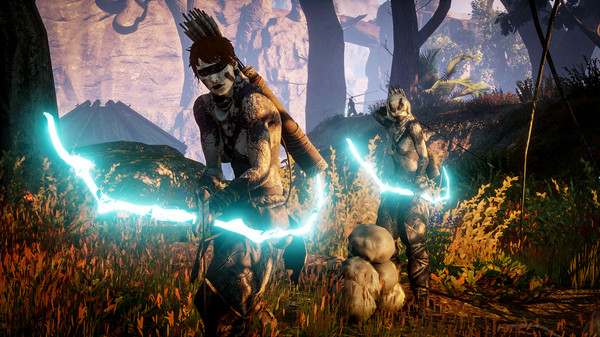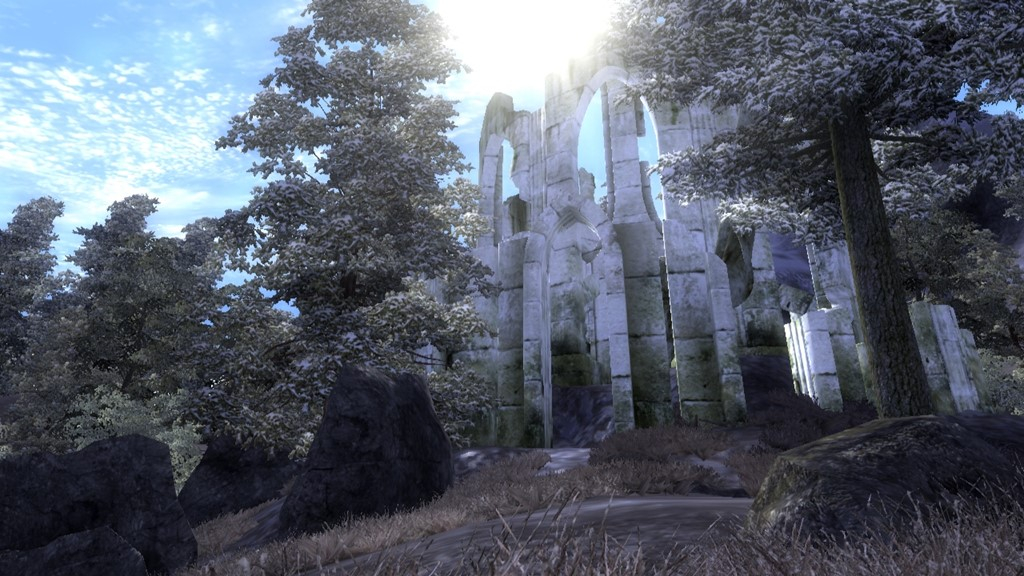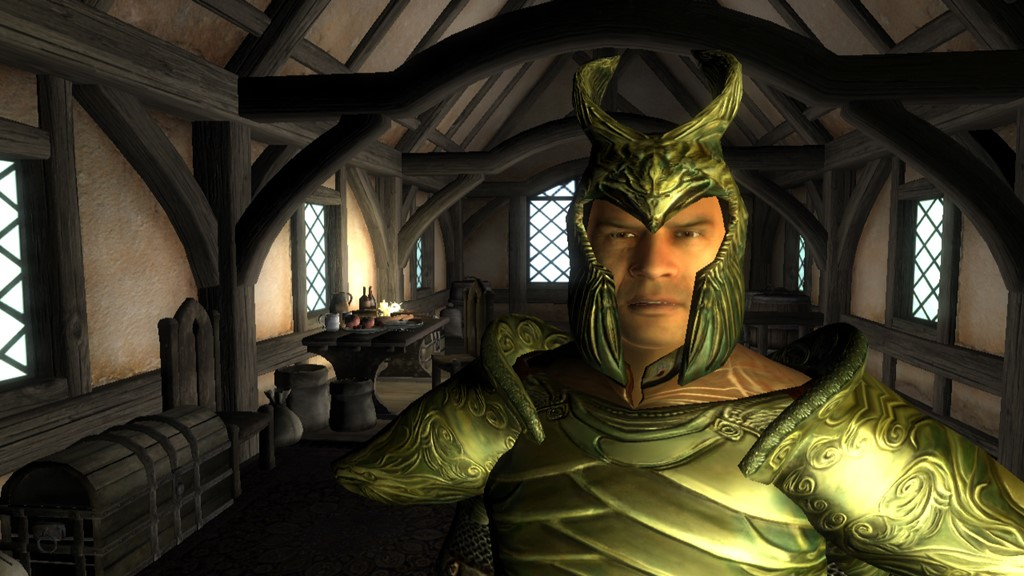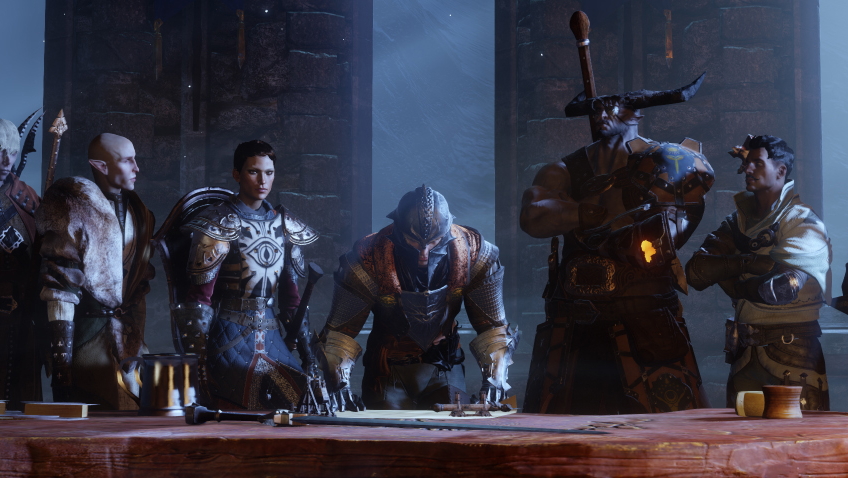
Sign up for breaking news, reviews, opinion, top tech deals, and more.
You are now subscribed
Your newsletter sign-up was successful
Growing up queer is the Dark Souls of adolescence. Not only are you thrust into a complicated world no one understands, but suddenly everyone tries to flatten you with their big monster fists because the person you want to have a consensual relationship with happens to be a bit different. While in Dark Souls you discover the dodge roll to survive, in real life I discovered video games. Yet it wasn’t until I was an adult that I realised the way it helped formed my identity as a gay, queer man. Because games aren’t some nebulous feeling; they are a force pushing and changing all it comes into contact with, like the sea forms the coastline.
This isn’t just some games-as-art discourse: video games are being used in a clinical setting to explore sexual and gender identity. Licensed Clinical Social Worker Andrew Fishman explains in Psychology Today how the choice between “Boy” and “Girl” in Pokémon was the first time one client was given the opportunity to ask what gender they were. Another therapy client also discovered the cause of their dysphoria in Horizon: Zero Dawn. He writes: “Alex explained that it was more than the usual fun of overcoming a fast-paced challenge. Aloy’s long red hair, her clothing, even the way that she stood felt liberating.” He continues: “Alex had always been called a man but wasn’t sure why this felt uncomfortable. Exploring this was Alex’s first step toward understanding herself as a trans woman.”
I felt this, too, in my experience as a cisgender gay man. When those inevitable feelings started bubbling up at puberty, bringing with it a tsunami of questions, heartbreak, and bad decisions, my immediate instinct was to push them down. Growing up in the 00s, the main insult for everything was “gay”, and my home wasn’t a queer-friendly environment before I came out. But video games offered me sanctuary.
Gradual understanding

So in the privacy of my room, I came face-to-face with the Elder Scrolls IV: Oblivion’s character creator. Sure, they look like they were carved from the ugly stone found in the mines of Mount Ugly. But all of these characters had defined abs, pecs, arms. Abs I’ve never seen before - or, at least, flinched away from in real life or TV, for fear of someone finding out my “dark secret" (that I am queer, like over a million other people across England and Wales, more than the population of Cyprus). So I stripped the character down and looked at them in their loin cloth. Not even in an overtly sexual way, but a simulacrum of what I wanted - I observed this male form, and observed my desire for it. Rather than flinching away, the game allowed me to see reality for what it was; who I was.
My flatmate Micah, 24, who lives with me in East London, used The Sims 2 to explore his sexuality. “I remember always being much more bothered about the way my male sims looked in their underwear and swimsuits.” He adds: “Later down the line I started downloading mods that would expose The Sims more, give them visible genitalia.” There’s no judgement here: in The Sims I used the cheat to move things so I could see the men in the shower in the feverish way only a repressed and crazed teenager would do.

Bisexual games writer Alyssa Mercante had a similar if not as explicit experience in The Sims 2, as she writes in Gamesradar of getting two female Sims to “tickle” each other: “I remember at the time furtively glancing over my shoulder to see if my noisy younger sister or even noisier parents were watching me play before swiftly clicking the 'kiss' option.They embraced and I smiled – but then embarrassment quickly set in. I immediately shut the computer off and didn't return to the game for a few days, feeling uncomfortable with what had just happened. I wasn't disgusted, but I wasn't sure if it was okay.”
Micah shared a similar aspect of shame: “Before I fully came to terms with the fact I was gay, I felt a lot of shame and guilt about the ways in which I chose to explore my sexuality in private. It was a big part of why I didn’t stay closeted for very long at all - I hated bottling that shame inside.”
Sign up for breaking news, reviews, opinion, top tech deals, and more.
Choosing who to kiss, however soap opera, tangibly affects the world and, most importantly, the characters you’ve grown to care about
In all three of these cases, it starts with shame as the reaction to the experience, before the experience permeates our lives. It’s the wedge that bursts open an understanding of ourselves as we explore in privacy and safety. Not just from closet to out, but even deeper: bisexual and non-binary writer Emma Osborne writes of their experience of Dragon Age: Inquisition for Junkee: “While I’d previously been out as a lesbian for many years, choosing to romance Cullen… allowed me to explore and come to terms with my bisexuality and indeed my non-binary gender identity.”
This represents the beauty of video games as both art and experience. Unlike more passive forms of entertainment, we control video games; it’s us inside the narrative, with choices manipulating the world like in real life. This is why David Cage games fall so short, so often: quick time events do not make an interactive storytelling experience. Choosing who to kiss, however soap opera, tangibly affects the world and, most importantly, the characters you’ve grown to care about. When the empathy for the character is so engrained in your experience, it drags you into this canyon of understanding, whether you want it to or not.
Open to everyone

This experience is so powerful it expands outside queerness and helps straight people empathise with us, too. Sticking with Dragon Age: Inquisition, a huge swell of straight men spoke to each other about how they wanted to romance Dorian, the gay Tevinter mage. On one Reddit thread, a user asks “How many other straight males romance Dorian…?” Adding “I couldn’t help it… He’s so witty and charming and the perfect guy for a bromance, and at first I honestly didn’t know he wasn’t straight until that side quest you do with him and his father. Having friends who are gay, that cutscene hit really hard.” Dorian is rejected by his Magistrate parents for his sexuality. A similar Game FAQs post reads: “I’m not gay but I’m thinking about romancing Dorian lol” Even back in Dragon Age 2, game critic (and straight man) Yahtzee Crowshaw admits to romancing Anders in the game as he felt it was the best path narratively, and he is not someone I would describe as a “social justice warrior”.
Games - like all art - give us a framework in which to live our lives, and through it, improve them
My pet theory is this is why people scream about “politics in games” - they on some level understand how strong the empathetic power of video games is. When you can act out someone’s experience, the experience becomes impossible to deny.
Games - like all art - give us a framework in which to live our lives, and through it, improve them. But games are deeper than other forms because of the interactivity. This is the magic of video games. I think back to this scared little teenager, unsure of what he was feeling but knowing there were demons at the door, trying to crush who I was inside. I think about all the other kids and teens feeling the same, in a shifting and in some ways even more hostile world. And the thought of them picking up a game and seeing, for the first time, adults having a relationship with a species of bisexual psychic aliens in Mass Effect, or gay wizards in Dragon Age 2, or the role model of Aloy in Horizon and feeling for the first time a little bit understood.
Every day this week, TechRadar Gaming is running content celebrating Pride.
Tom Capon is a London-based journalist and freelance contributor to TechRadar.